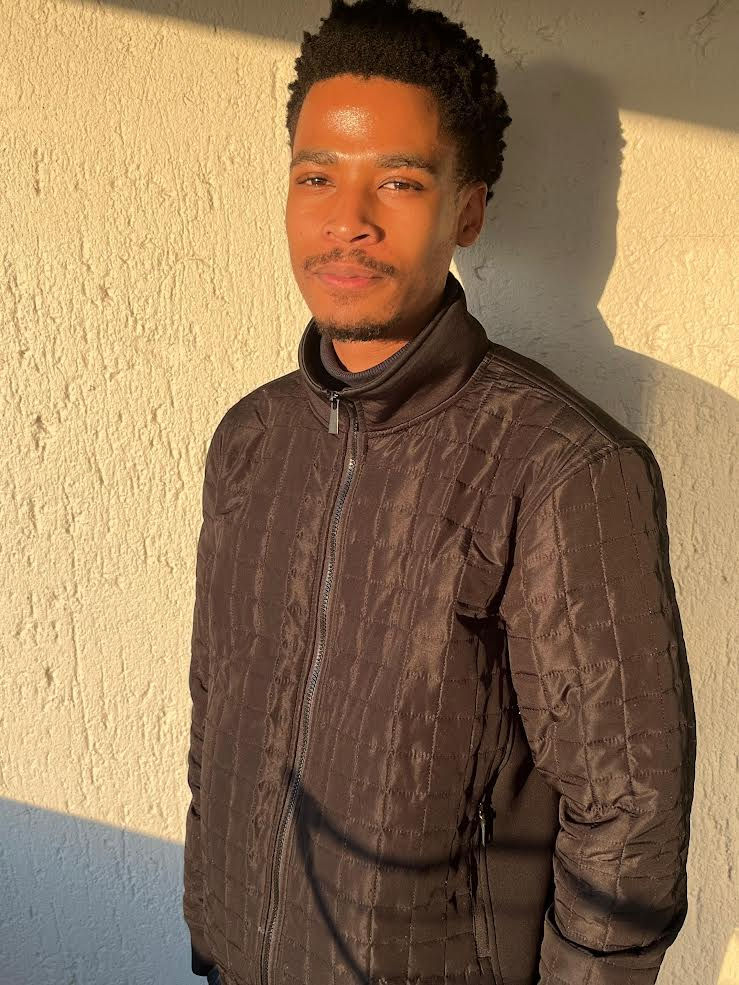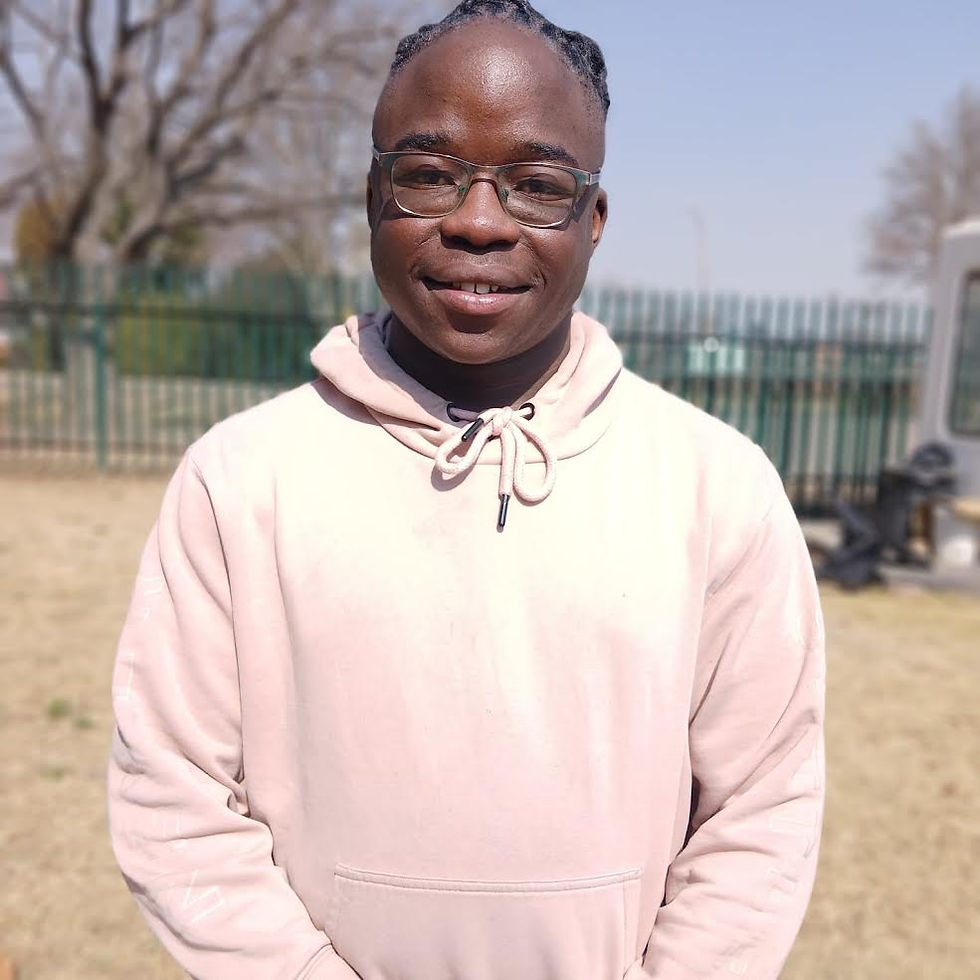Mentored as boys, paying it forward as young men
- The Character Company

- Aug 7, 2025
- 5 min read
By The Character Company

Growing up without a present, caregiving father is a challenge faced by too many South African boys. It’s a shockingly common abandonment that is exacerbated by the current fragmented state of masculinity. Who are fatherless boys supposed to turn to for positive examples of what it means to be a man?
Without intentional intervention, boys with absent fathers face high risks of emotional, social and behavioural problems. Research consistently shows they are more likely to struggle with forming identities, experience lower self-esteem and have trouble regulating their emotions. They are more vulnerable to school truancy and underachievement, aggression and social withdrawal, substance abuse and other mental health conditions. They often have difficulty forming respectful, positive relationships and there’s greater chance they will grow up to perpetuate cycles of harm.
Jaco van Schalkwyk, Founder and CEO of The Character Company, which provides a mentorship programme for fatherless boys, says, “It’s beyond time, for South Africa as a nation to realise that we cannot hope to resolve South Africa’s high rates of gender-based violence (GBV), gangsterism, substance abuse and crime without taking action to improve the well-being of our boys. While we work to improve gender equality and safety for women and girls, we must also ensure that we are meeting the basic human need for boys to be engaged in healthy, empathetic, trusted relationships with men who serve as their positive role models and reliable guides.
“For this, we need men to step up and fulfil their role in raising boys to be good men, as fathers, as mentors and as social fathers. Our mentors pay it forward today through their volunteerism. Over time, our alumni will themselves pay it forward in countless ways as they move through their lives as good men contributing to society.”
Through a values-based curriculum, the Character Company programme has delivered almost 10 000 mentorship sessions for more than 1100 boys over the past 13 years. The programme also holds weekend and holiday camps that foster a strong sense of community and provide safe spaces for boys to put values into practice and reflect openly on their life challenges.
Many of the Character Company alumni maintain these boyhood relationships after they graduate from the programme at 18 years of age. David Mokoka remembers that when he was first enrolled in the programme, he was overwhelmed with resentment at growing up without a father figure. He says, “I had no father and because of that I was so angry. I had so much hatred towards everything and everyone. Looking back from 21 years of age, when I am living and working independently, I am a world away from that hurt boy.
“Today, I am a person with values. Because of the Character Company, I had so much more in my life than my hurt and my anger at my circumstances. I had life-changing experiences, I would never otherwise have had. I will always remember going on my first adventure camp, kayaking down the Orange River, belonging in a community of boys and men. It was completely amazing to me, I was doing something so cool, something I could never have dreamed of as a boy without a father. It brought men into my life who really cared about me, who made the effort to see me and hear me and teach me. I could see and feel the complete difference between this and toxic masculinity - and I could make choices about the kind of man I wanted to be.”

A contemporary of his, Kamo Pule says, “The most important lesson I learned from the Character Company is that it takes a community to raise high-impact individuals. After all the camping and activities, I have established Christ-centric relationships that promote positive masculinity, collapse internalised insecurities and create a space where one can just be. This has changed the way I view relationships and has made me want to be the best version of myself and a valuable member of a community that helps raise boys to be great men in society.”
Shifting societal expectations of men
Traditional ideas of masculinity such as male dominance, authoritarianism and suppression of emotion are increasingly out of step. We live in a time that is instead favouring collaboration, consensus-building, accountability, transparent communication and emotional literacy. As a result, masculinity has become fragmented and there is no longer widespread agreement on what it means to be a man. For boys, hungry for male guides to show them the way, this can be very confusing.
Jaco says, “Our focus is on values, that everyone agrees, build good character – honesty, even when it’s hard; respect for self and others; courage; self-discipline and kindness. When a value system like this is embedded in your masculine identity, you always have a solid, internal framework for making decisions and choices when it comes to your thoughts, words and actions. You are also fit to be a role model for others.”
These values are perhaps, the most important ‘takeaway’ of the programme for the alumni. Pule says, “I am at a place now in my life where self-discipline is a lifestyle more than an obligation. I am working extremely hard in my career to ensure that I can be the one who provides for my mother one day. I want her to witness that the investments she has poured into my life have come to fruition. I believe that without the Character Company values, I would not be where I am right now.”

John Motau, another alumni concludes: “Growing up, I never had a man to look up to and the Character Company helped fill that void. The value that means a lot to me is respect. I give it and experience it coming back to me. Through the programme I gained a deep understanding of the importance of vulnerability and empathy in my relationships with my mentor and the other boys. My experience also taught me to have empathy and respect for women. Right now, I am a man with values that the Character Company has instilled in me. Every day I have those values, and I take them everywhere I go.”
The journey from boyhood to manhood is not meant to be walked alone. The work of the Character Company shows that fatherless boys can grow into men who are empowered to break harmful cycles and build something better - not only for themselves, but for our communities, and country.
Learn more about The Character company here
Find out about becoming a mentor at The Character Company.




Comments